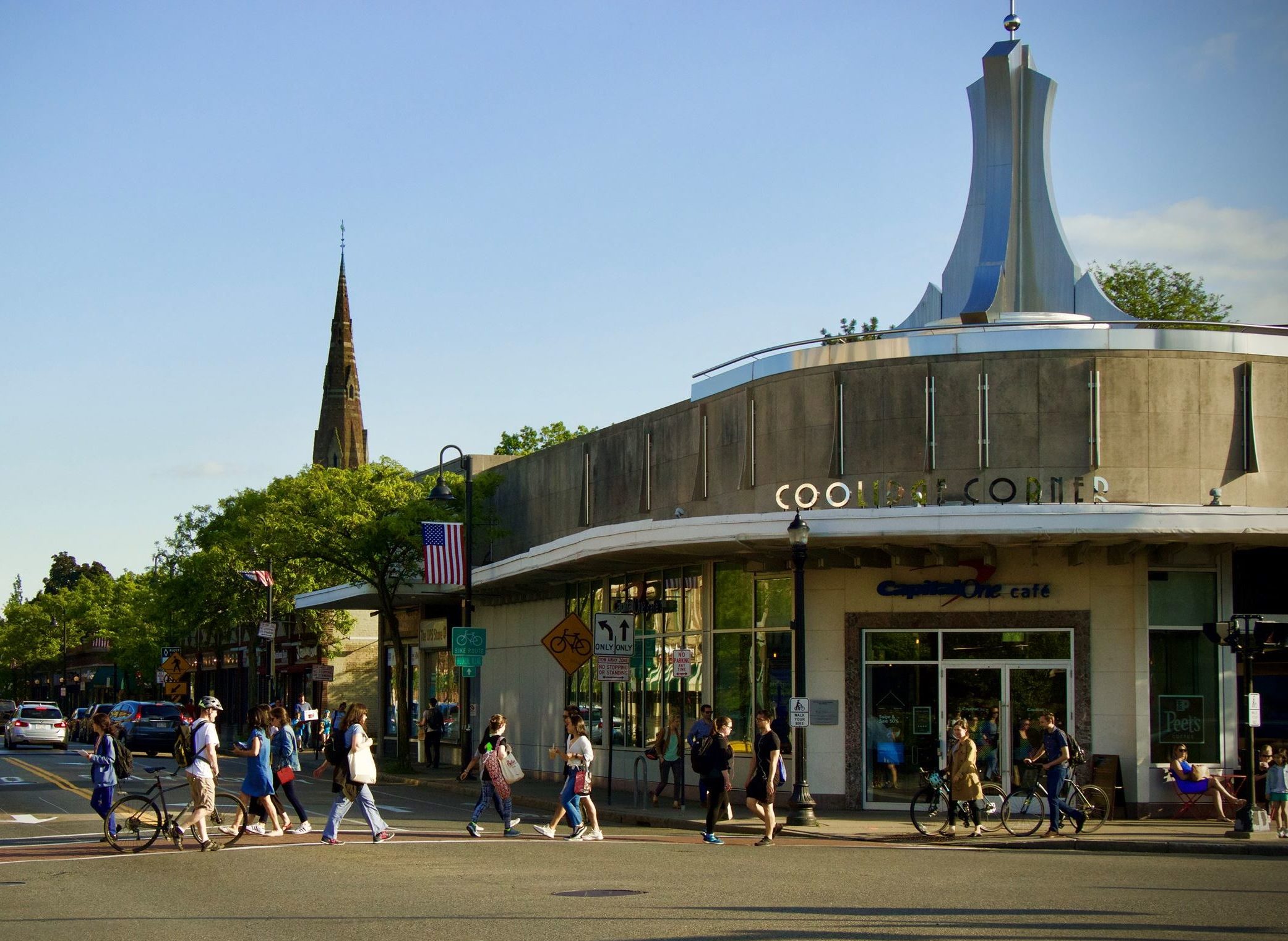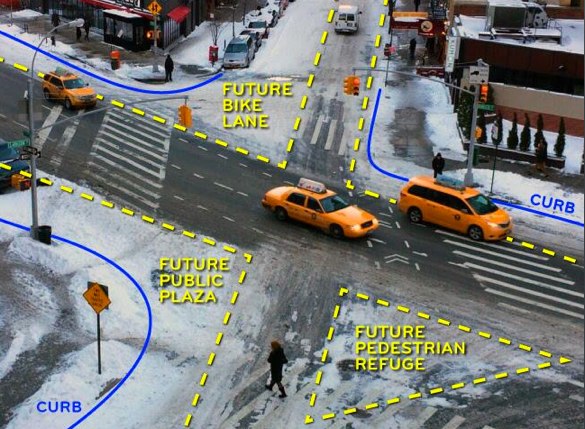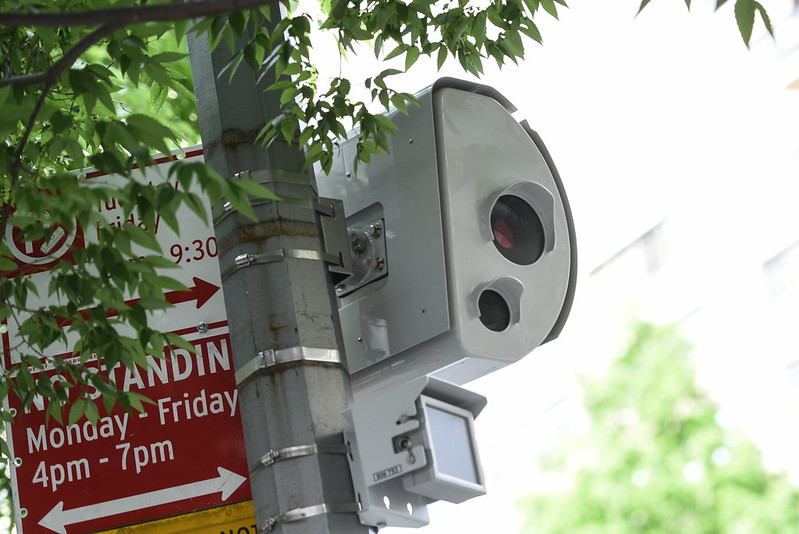A once-in-a-generation redistricting shakeup means that nearly every member of the Brookline Town Meeting is up for re-election this year, and competing political factions in one of the state’s most transit-rich communities are lining up slates of candidates centered on one pressing issue: housing development.
Brookline, with two light rail lines within its borders and numerous walkable neighborhoods, is a desirable place to live - and also expensive. According to U.S. Census surveys, the town’s median household income is over $113,642 (about 50 percent higher than in neighboring Boston) and the median home value is over $1 million.
In recent years, a group called Brookline for Everyone has called on the town to legalize more affordable housing options and helped elect sympathetic candidates to Brookline’s Town Meeting, the legislative branch of Brookline’s municipal government.
“We know the policy solutions to the housing affordability problems that we’re seeing in Brookline and all over the place,” said Brookline for Everyone co-founder Jeff Wachter in an interview. “The problem is the political will and the people who actually get to vote.”
The group has scored some small victories, including reducing parking minimums for residential units near the T, re-legalizing micro apartments, and halting the expansion of a historic district. Its candidates also unseated a few incumbents in last year’s Town Meeting election.
But now, a new group called Brookline by Design is raising alarms that new development “puts Brookline at risk of losing its human-scaled neighborhoods, walkable streetscapes and valued landscapes,” and making an aggressive push to elect candidates who are in favor of “deliberate,” “predictable and appropriate” growth.
After an unusually disruptive redistricting in the wake of the 2020 census, the next Town Meeting will be made up of 17 new precincts of 15 people each.
Brookline by Design has endorsed candidates for most of those 255 seats, and its fliers and yard signs have proliferated around the town. Its leaders include influential Brookline politicians, including two former select board chairs, Neil Wishinsky and Bernard Greene.
No representative of the group responded to several requests for comment, but questionnaire answers posted on their website paint a picture of candidates who believe that there is an ongoing, unwieldy rush of over-reaching development and that the town should have a comprehensive planning process for building more housing.
“Brookline is a great place to live in large part because we still have some green, and buildings on most residential streets do not block out the sky and cast shadows over their neighbors,” said candidate Don Leka in one answer.
“I am very concerned about the uncontrolled growth which is putting a strain in the public school system and increasing traffic,” said another, Ana Otero. “I think Brookline can develop in a careful way so it maintains the quality of schools, public spaces, pedestrian safety and local businesses.”
With the new Town Meeting districts, Brookline for Everyone also sees 2022 as a big opportunity.
“A lot of the people who we’re endorsing or who have been connecting with us are generally younger, generally have kids in schools, and … also have a lot more disruption because of the housing crisis,” Wachter said.
Brookline for Everyone board member Jonathan Klein, a retired housing attorney, said that he and the group’s position is not against planning.
“Planning is a good thing, and communities ought to plan,” he said.
But the proposals from Brookline by Design would “take 10 years to accomplish in the best of worlds. And even if you got to the end of a comprehensive plan with a whole new zoning code, you would need a two-thirds majority to pass it and there's no guarantee that that would happen. And the corollary of all that is we shouldn't do anything until we have a comprehensive plan.”
A battle for the State House
The debate has bled into races for higher office as well.
Raul Fernandez, whose term as a Brookline select board member ends with the election next week, is primarying Democratic Rep. Tommy Vitolo, with housing and density as one of the main planks of his campaign.
“I think most people who live here, they'd like to see us be a more diverse place, a more affordable place, to have a greater mix of families live here,” Fernandez said in an interview. “And it’s a big issue for a lot of people here, as evidenced by the fact that we have at least two groups that are working on this, not to mention our housing advisory board and other people who really care about these issues.”
Vitolo, for his part, downplayed the importance of the housing debate to voters, and also said he does not see a massive difference between the two factions.
“No one in Brookline is running around saying the cost of housing is what it should be. Everyone universally agrees housing costs are too high,” Vitolo said. “The disagreement is about whether or not Brookline should add some, or a lot of housing, or whether it should be here or there. What should the shape of that housing be?”
Brookline by Design and Brookline for Everyone are “not opposing forces,” Vitolo argued.
“I think they both have ideas that should shape Brookline’s future. Of course we should be planning. No one is advocating we should not be planning. But we can’t wait for a complete town-wide comprehensive plan to agree to do anything. That’s an impossible requirement.”
The transportation connection
The fact that Brookline has some of the best access to transit in the state makes the stakes that much higher, advocates say: a continued dearth of development in Brookline and towns like it pushes more housing to further out suburbs where residents are more likely to have to drive to get around.
“Young professionals who want to start a family can't buy a house here, can't buy a condo here,” said Joan Lancourt, a member of a housing advocacy group called Building a Better Brookline.
“So they move somewhere else, because they can't afford it here. And they have a long commute to their job, so they're polluting the atmosphere.”
It’s a trend that hasn’t gone unnoticed by Massachusetts’ elected officials: the new rules around development near MBTA stations will require Brookline to create new zoning capacity for nearly 7,000 multifamily homes. The town is working on its compliance options, including possibly reducing the triggers for special permit reviews, creating a new dense residential district, or easing the rules for single-family zones.
The housing and transit nexus has been a valuable connection for rallying support for Brookline for Everyone’s goals, Wachter said.
“We’re talking to people about creating an opportunity for those who want to live in Brookline because of the walkability and the transit access, and we’re able to bring more of those people in,” he said.
You can find more information about the May 3 Brookline election on the town’s website here.






